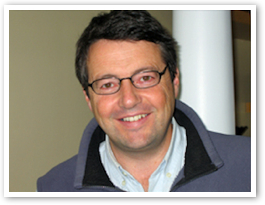The Importance of Identifying Threats to Non-favoured Groups
- IAIN T. BENSON
It is my experience, as a lawyer, that many people are threatened in schools. Many feel that their beliefs and convictions are under attack from within the very bodies that currently hold sway within the schools themselves.
 |
Iain T. Benson
|
Dear Safe Schools Task Force:
It is my experience, as a lawyer, that many people are threatened in schools. Many feel that their beliefs and convictions are under attack from within the very bodies that currently hold sway within the schools themselves. They feel excluded, alienated and victimized by the schools. Their poverty or lack of resources means that they cannot choose the kind of private schooling that is available to those with greater resources.
As a constitutional lawyer consulted frequently by groups and individuals who are concerned about the nature of public schools today, it is my experience that many citizens, across a wide variety of beliefs (religious and non) feel that the public school system does not, in many key ways, respect the beliefs (religious and non) of parents and families. And it is not just, say, religious parents who feel that they and their children are alienated.
Some teachers feel so threatened by the "conduct code" of the BC Teachers' Federation, for example, that they are afraid to speak out to challenge what they believe to be the dangerous ideology of control exemplified by that Union.
Similarly, the BC College of Teachers, having lost on a notorious case argued all the way to the Supreme Court of Canada, (Trinity Western University) now challenges an individual teacher in an outlying area of British Columbia because of his views as expressed in local newspapers (I refer to the Chris Kempling case).
Teachers feel intimidated by other teachers and their Union.
Parents feel intimidated by school officials and the stance of groups such as GALE (Gay and Lesbian Educators). Such groups claim that their perspective on controversial issues is the only perspective of justice and that all others must accept it. They claim that justice requires that their voice and theirs alone should be heard. This is a very dangerous approach and it is well advanced in Canadian society in general and British Columbia Schools in particular. A return to genuine pluralism is needed.
In short, your "safe school task force" must address the very real problem of the threats to religious parents and communities by the current ideology of public education and the groups who have a particular axe to grind within it. Ways must be found, not to subordinate one community's beliefs to those of another but to develop what philosopher John Gray has recently called, a modus vivendi a way of living together.
The ideology of domination and subordination where other viewpoints are stigmatized as in the terms "fundamentalist", "homophobic" or "heterosexist" is an attempt to use the principles of fairness in aid of domination. In such a climate we run the risk of overlooking those who have no "voice." The ideology of "victimization" where the "victim" groups are the very ones who have no trouble at all getting taskforces to make a case for their "victimization" is something that must be carefully noted and controlled.
You must, to have credibility, note the lack of safety (in its widest sense) felt by those parents and children who have a religious committment and feel their beliefs under attack in the current environment.
It is those "outside" the current favoured ideologies (those who revere religious traditions) who need to be heard in the discussion before you and, sadly, many of them feel disempowered and that they do not have "voices" anymore. They have no access to Federal funds for court challenges, no support from the spirit of the age and little if any support from the school system. It is for this reason that a task force such as yours has, in my respectful submission, a duty to take note of their sense of exclusion.
I hope these comments are helpful to you in your important work. I would appreciate it if my brief note could be a part of your record and made available to any who request it.
Sincerely,
Iain T. Benson
Barrister
& Solicitor
Bowen Island, BC
 This is Meaghen Gonzalez, Editor of CERC. I hope you appreciated this piece. We curate these articles especially for believers like you.
This is Meaghen Gonzalez, Editor of CERC. I hope you appreciated this piece. We curate these articles especially for believers like you.
Please show your appreciation by making a $3 donation. CERC is entirely reader supported.

Acknowledgement
Iain T. Benson. "The Importance of Identifying Threats to Non-favoured Groups." submitted to the Safe Schools Task Force (November 25, 2002).
Reprinted with permission of the author.
The Author
Iain Tyrrell Benson is a legal philosopher, writer, professor and practising legal consultant. The main focus of his work in relation to law and society has been to examine some of the various meanings that underlie terms of common but confused usage. An advocate that the public sphere should be open and inclusive of all citizens and their groups, whether their faith and belief commitments are based on non-religious or religious beliefs, Iain Benson was the first Executive Director of the Centre for Cultural Renewal, a non-partisan, non-denominational charitable foundation with status in both Canada and the United States, dedicated to examining the nature of pluralism with particular reference to the associational rights dimension of religion and expression.
Copyright © 2002 Iain T. Benson

